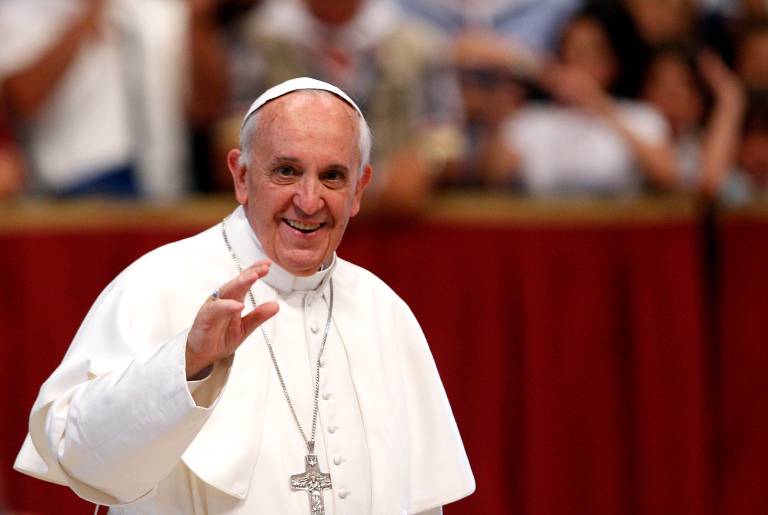What is unmentionable in a society tells you a lot about the moral character of a society. During the Second World War, British philosopher Elizabeth Anscombe publicly decried the policy of “obliteration bombing” in practice at the time. She did so not on the basis of any utilitarian calculus or any technical construal of the principles of just war theory. She did so because she took it as self-evident that indiscriminate bombing of civilian population centers was murder. That such an act was murder and that acts of murder were to be unconditionally proscribed, were, in her mind, far more fundamental premises than any second-degree argument by which one might claim to defend the act. Thus, in a sense, to even entertain the possibility of intentionally pursuing the policy of obliteration bombing is to engage in a corrupt and corrupting activity. Obliteration bombing should be clearly beyond the boundary of what any good human society would deem worthy of serious consideration.
In every society there is in fact a realm of the unmentionable. Certain things fall within its borders at some times and not at other times, but one cannot seriously deny that the realm itself exists. We do not seriously entertain the question of whether human corpses should be used to supply food to areas of the world suffering from starvation-level food scarcity. We do not seriously engage the arguments of “scholars” who argue that the Holocaust did not occur. (I put “scholars” in scare quotes because any historian arguing such a claim would—for that reason—not be considered a real scholar.) Likewise, a public debate on the propriety of forced sterilization is not only unlikely but unthinkable in our present society (though it was not always the case).
In the thick of the Second Iraq War, the Australian philosopher Raimond Gaita raised a similar question with regard to the “enhanced interrogation techniques” then used by the United States government. What does it tell you about a society that they would engage in a debate about whether or when it is necessary to torture people? Such a debate is not only a symptom of moral corruption, he argued, but is itself morally corrupting. Like Anscombe’s with respect to obliteration bombing, Gaita regards the view that acts such as waterboarding or extreme sleep deprivation are evil and therefore proscribed as more certain and fundamental than any higher-level ethical considerations that might be deployed to justify them.
In other words, to engage in a moral debate with someone who does not accept the unconditional prohibition of torture is not only ultimately futile but morally corrosive as well. What, after all, could the result of such an argument meaningfully accomplish? What would it accomplish, to use a more extreme example, to quibble over the application of moral theories with a Nazi scientist who just personally observed several people freezing to death as he scribbled down their body temperatures? Not only would such a debate be fruitless; it would be personally corrupting as well. Is it all that dissimilar to say, then, that in our day that to debate whether a government would intentionally pursue a policy of systematic torture should be, if not unthinkable, at least unmentionable in public discourse, and that to engage in such a debate is itself corrupting?
So that brings me to the question that I would simply like to address in this post: if it is true that there is a realm of the unmentionable, or at least the undebatable, then how does this boundary manifest itself and function within our more quotidian interactions with media? There are FCC regulations about saying certain words or phrases on air or in mainstream print media, and in some societies there are even regulations on hate speech directed at certain demographic groups. Yet there is something more, something deeper that governs public speech and media that cannot ultimately be regulated by assessable restrictions. It is that elusive yet undeniable horizon of public behavior we call “decency.”
It is one thing to report in the newspaper the discovery of a body in the woods, or to summarize a plaintiff’s testimony in a sexual assault case. It would be entirely different, however, to describe in vivid detail a body’s state of decomposition, or to repeat the precise details of a person’s experience of rape. What prevents the media from presenting these grisly and graphic details to the public? It is certainly not the FCC, nor is it simply the visceral “yuck factor” in play. Nor is it necessarily the irrelevance of those details to the particular case being reported. It is ultimately, I would argue, a sense of human decency that constrains them, both positively (through a natural concern for other human beings) and negatively (through a fear of public embarrassment).
That brings me then to the more specific question I would like to raise: how did it come to pass that pornography is now news? Perhaps I am one of the last people to come to this realization, but I began to ask myself whether it might actually be true that pornography is now “news” during the massive media coverage of the digital release of stolen nude pictures of Jennifer Lawrence and other celebrities by online hackers. It was a curious and concerning incident to be sure, but it struck me as both preposterous and indecent that the media would (unwittingly?) compound the crime by making the release one of its top stories for the day and by following up on the story at every possible opportunity.
More recently (yesterday, in fact), mainstream news sources did the same thing by not only reporting but showing (with the obligatory but essentially meaningless “blurry patches”) the nude pictures of Kim Kardashian which were just published online. This picture appeared in the 90-second summary of the news at the beginning of CBS This Morning. The publication of these pictures was, apparently, one of the most significant events to have occurred over the past 24 hours.
And so that brings me to my final question: what is the moral significance of the fact that pornography is now news? And perhaps more importantly and disturbingly: how does one confront the moral implications of this reality without entering into a debate over whether or not pornography is in fact news? For I would submit that even entertaining such a question would be a sign of and an acquiescence to corruption.
But we do now live in a world in which pornography is news, it would seem. How can Christians live in this world in a way that gives witness to this corruption without entering into its orbit?




